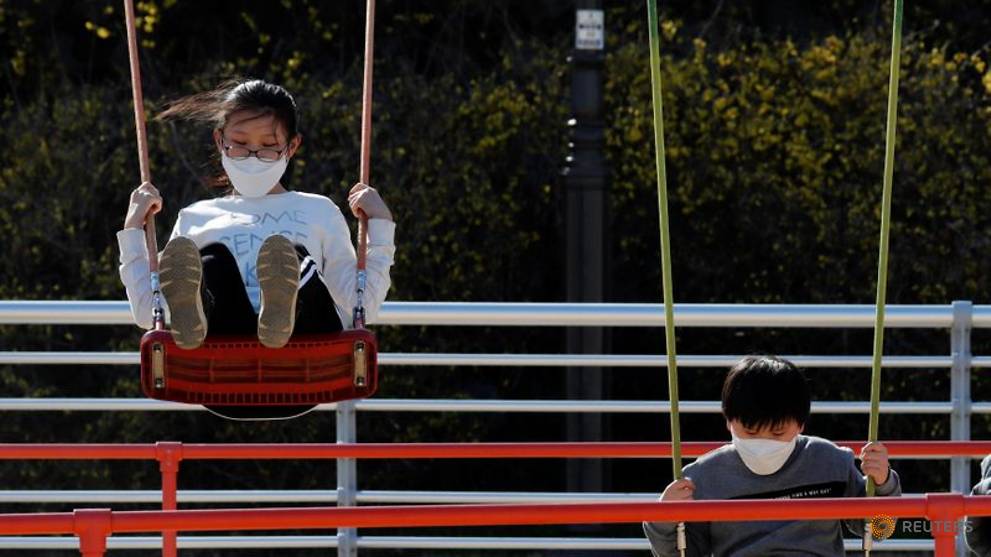
Why the coronavirus affects children much less severely than adults has become an enduring mystery of the pandemic. The vast majority of children do not get sick; when they do, they usually recover.
The first study to compare the immune response in children with that in adults suggests a reason for childrens relative good fortune. In children, a branch of the immune system that evolved to protect against unfamiliar pathogens rapidly destroys the coronavirus before it wreaks damage on their bodies, according to the research, published this week in Science Translational Medicine.
Advertisement
Advertisement
“The bottom line is, yes, children do respond differently immunologically to this virus, and it seems to be protecting the kids,” said Dr Betsy Herold, a pediatric infectious disease expert at Albert Einstein College of Medicine who led the study.
In adults, the immune response is much more muted, she and her colleagues found.
READ: COVID-19 death toll could double to 2 million before vaccine in wide use – WHO
When the body encounters an unfamiliar pathogen, it responds within hours with a flurry of immune activity, called an innate immune response. The bodys defenders are quickly recruited to the fight and begin releasing signals calling for backup.
Advertisement
Advertisement
Children more often encounter pathogens that are new to their immune systems. Their innate defense is fast and overwhelming.
Over time, as the immune system encounters pathogen after pathogen, it builds up a repertoire of known villains. By the time the body reaches adulthood, it relies on a more sophisticated and specialised system adapted to remembering and fighting specific threats.
If the innate immune system resembles emergency responders first on the scene, the adaptive system represents the skilled specialists at the hospital.
The adaptive system makes sense biologically because adults rarely encounter a virus for the first time, said Dr Michael Mina, a pediatric immunologist at the Harvard TH Chan School of Epidemiology in Boston.
But the coronavirus is new to everyone, and the innate system fades as adults grow older, leaving them more vulnerable. In the time it takes for an adult body to get the specialised adaptive system up and running, the virus has had time to do harm, Herolds research suggests.
READ: Commentary – With or without masks, our kids have surprised us with their adaptability
She and her colleagues compared immune responses in 60 adults and 65 children and young adults under the age of 24, all of whom were hospitalised at the Montefiore Medical Center in New York City from Mar 13 to May 17.
The patients included 20 children with multisystem inflammatory syndrome, the severe and sometimes deadly immune overreaction linked to the coronavirus.
Overall, the children were only mildly affected by the virus, compared with adults, mostly reporting gastrointestinal symptoms like diarrhea and a loss of taste or smell. Only five children needed mechanical ventilation, compared with 22 of the adults; two children died, compared with 17 adults.
Children had much higher blood levels of two particular immune molecules, interleukin 17A and interferon gamma, the researchers found. The molecules were most abundant in the youngest patients and decreased progressively with age.
“We think that is protecting these younger children, particularly from severe respiratory disease, because thats really the major difference between the adults and the kids,” Herold said.
READ: Some pre-schools to continue policy of masks or face shields for children under 6 even after rule change
In some adult COVID-19 patients, she added, the lack of a strong early response also may be setting off an intense and unregulated adaptive reaction that may lead to acute respiratory distress syndrome and death.
All viruses have tricks to evade the innate immune system, and the coronavirus is particularly adept. Produced early in the course of infection, interleukin 17A may help children thwart the virus attempts to evade the innate response and to ward off the later adaptive response.
“We think that also protects them from sort of making the more vigorous adaptive immune response thats associated with that hyper-inflammation,” Herold said.
Other experts said the study was well done but suffered – as most studies of the coronavirus do – from enrolling patients too late in the infection.
The innate immune response is set off hours after exposure to a pathogen, but people generally dont come to the hospital until about a week after infection with the coronavirus, when symptoms are severe, said Akiko Iwasaki, an immunologist at Yale University.
Thats too late to study how the innate immune system responds to the virus, she said, adding, “By the time people are sick, its way past that time point.”
Still, the new data negate a couple of popular theories about why children are protected from the virus, she said.







